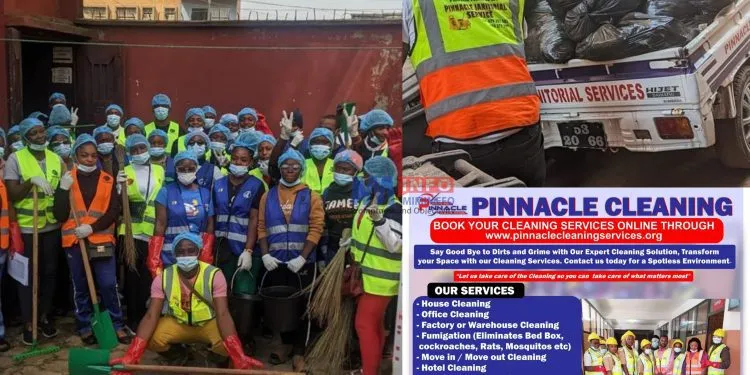The ongoing conflict and neglect in the city of Bamenda, North West Region of Cameroon, have grounded the waste management infrastructure. However, for one entrepreneur, the situation has been an opportunity to step up and offer a sustainable and socially conscious solution. Lukong Frankline, the founder of Pinnacle Ventures LTD, is actively addressing the region’s waste crisis. He is doing so, one trash can at a time.
“The rising rate of decomposing waste along the busy streets of Bamenda, especially since the advent of the Anglophone crisis, and the extremely poor waste disposal methods pushed me to come up with this idea,” Frankline told MMI in an exclusive interview. “This business was brought up to bridge the gap by collecting waste on a door-to-door basis from homes, offices, hotels, and restaurants.”
A Social and Business Mission
Pinnacle Ventures operates as both a social enterprise and a business. The company provides labelled 120-litre trash cans for sorting decomposable and non-decomposable waste, collected weekly or biweekly for a modest monthly fee of 5,000 FCFA. Every collection cycle replaces the plastic bags lining each can.
But the initiative goes beyond logistics.
“Ever since HYSACAM left due to insecurity, approved waste dumping sites have been drastically reduced. People now dump trash in gutters, roadsides, and streams,” said Frankline.
His venture also addresses another urgent issue: youth unemployment. “The Anglophone crisis has led to lots of internal displacements, resulting in high unemployment rates. Most youths are tempted to go into crime. I thought creating this liaison in the trash collection chain would bring employment to a good number of internally displaced and vulnerable youths.”
Currently, Pinnacle Ventures employs a team of seven staff and operates three vehicles. These include a van and two four-wheel-drive mini trucks. They are used for waste collection and disposal. More than ten youths have been engaged in various roles within the enterprise on both temporary and permanent bases.
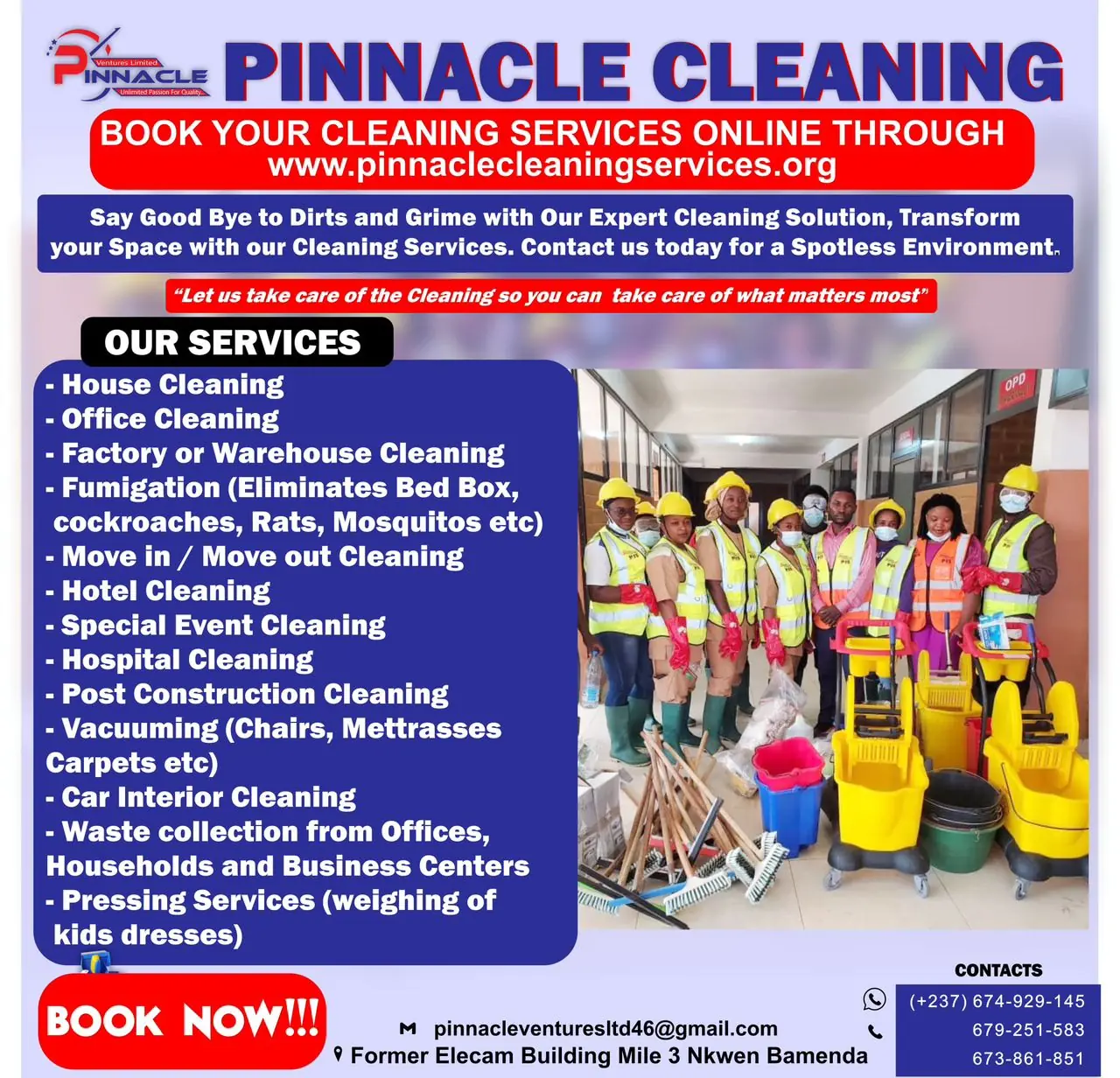
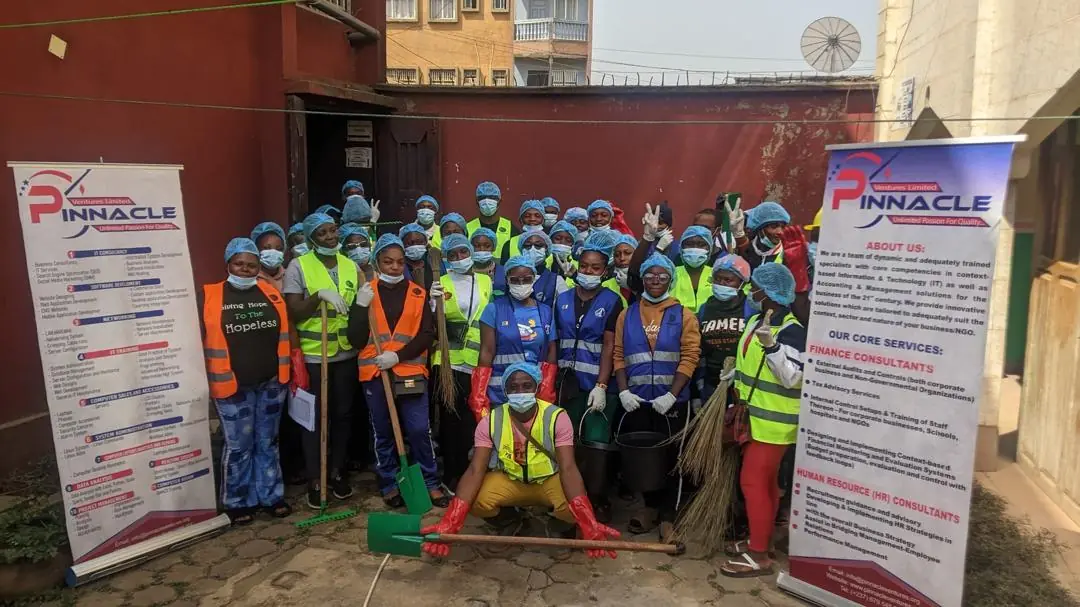
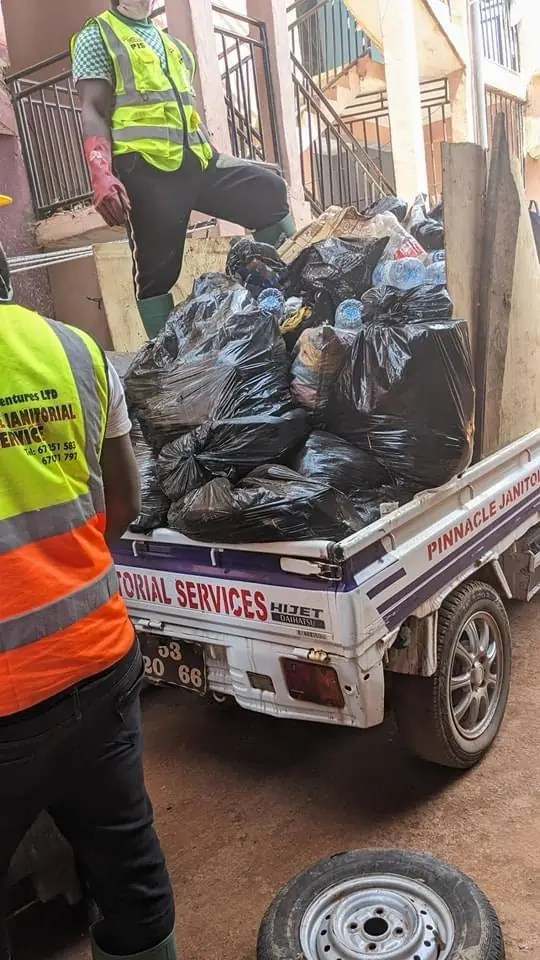
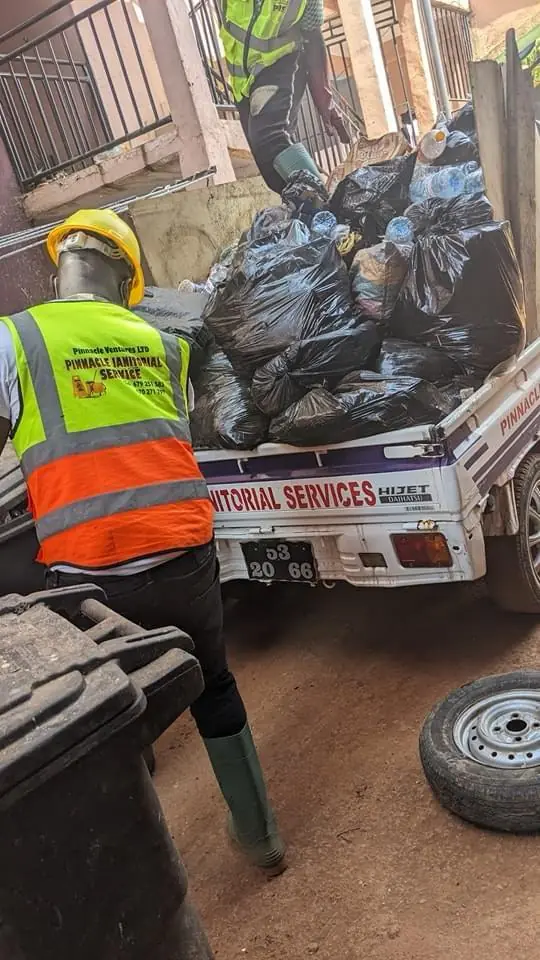
Navigating Challenges
Despite the positive reception, the business is not without challenges. “One of the biggest issues we face is the unwillingness of some users to sort waste before disposing of it,” Frankline told MMI. “We’ve created a WhatsApp group for all our clients where daily lessons are shared on how to effectively sort waste.”
Cultural resistance and economic hardship are also other sources of difficulty. “Even though we’ve made the service so affordable, citizens complain of the high cost. This is because of the general lack of money caused by the ongoing war and the economic hardship in the country.”
Insecurity also limits service delivery. “We cannot render our services in many parts of the town and at certain hours,” he adds.
Institutional Support and Sustainability
Pinnacle Ventures operates with the authorisation of the Bamenda City Council. The council has also allocated accessible dumping sites to reduce costs and safety risks. Although the enterprise has yet to receive formal awards or financial assistance, it is buoyed by internal cross-subsidies.
“Our company is multifaceted,” Frankline said. “We also run the Pinnacle Vocational Training Institute for ICT & Renewable Energy, Pinnacle Pressing, Pinnacle Cleaning Services, and Pinnacle Finance Consultancy. These tend to support each other and ensure sustainability.” Frankline also draws on his personal income as finance director of the St Blaise Catholic Hospital to support operations.
Looking Ahead
The vision for Pinnacle Ventures is ambitious. “We are already exploring possibilities of establishing partnerships with two companies in the area of recycling, especially for decomposable waste,” Frankline told MMI. “The city council is also developing a plan for plastic waste recycling. We therefore hope to take on the sorting and collection roles when the time comes.”
The company also aims to expand to other cities, including Bafoussam, Buea, Douala, and Yaoundé. To scale up, Frankline says they will need financial support to recruit more staff, purchase bins in bulk, attend training programmes, and acquire waste-processing equipment such as a plastic compounding unit and a solar-powered dryer for composting.
A Personal Journey
Reflecting on his entrepreneurial journey, Frankline says, “It has been a very fulfilling journey. It’s amazing when you realise that out of every ten people you stop to present the services to, 99% are willing to listen and understand more—even if they can’t afford to subscribe.”
His advice to fellow social entrepreneurs is clear-eyed and grounded.
“This is not a venture that gives you money in the short run. You need patience, a backup source of funds, and a long-term strategy. If you charge higher prices, you scare customers away because there are always unethical, cheaper alternatives. It takes years to convince your clients and build a solid base.”
Pinnacle Ventures stands today as a small but critical part of Bamenda’s response to a growing waste crisis. With persistence, community engagement, and a clear social mission, Lukong Frankline is turning a difficult environment into an opportunity for impact.


